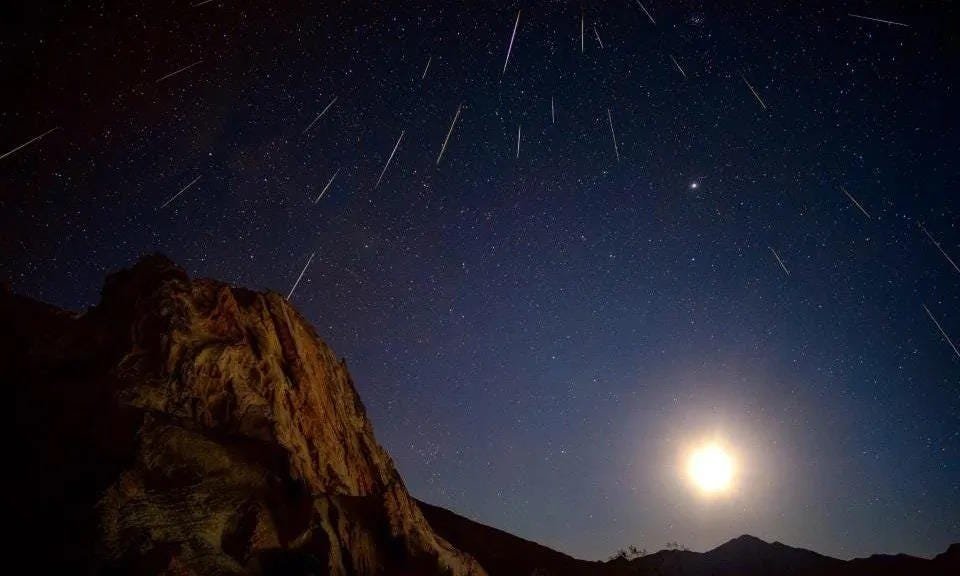Each December, the Geminid meteor shower puts on a show for skywatchers across Earth. With a new Moon at 2023’s peak, it’ll be outstanding!
Every year, no matter what else is occurring on Earth or in the heavens, you can rely on two meteor showers putting on a show: August’s Perseids and December’s Geminids. When the Moon isn’t out and sky conditions are favorable, the peaks of both of these meteor showers can lead to skywatchers all over the world seeing a hundred or more meteors every hour, making them two of the most reliable night sky events that recur annually. The reason is simple and straightforward: as volatile-rich bodies travel through the Solar System, they outgas and fragment when they get too close to the Sun, and the parent bodies of both the Perseids and Geminids have been stretched out into dense debris streams that, when Earth plows through them, create a spectacular, meteoric show.
But this year, in 2023, a series of events are all aligning, simultaneously, that could make this the best Geminid meteor shower of all-time. The shower itself is strengthening on an annual basis, as the debris stream that creates the Geminids thickens with each orbit of its parent body: Asteroid 3200 Phaethon. The Geminids occur very close to Earth’s perihelion: when our orbital speed is greatest, leading to faster meteors. And this year, the December 13/14 peak of the Geminids coincides almost perfectly with a new Moon (which occurs on December 12), creating near-perfect sky conditions. Here’s how to make the most of the experience.
In all known cases, meteor showers arise from a parent body, like a comet or asteroid that’s passed close to the Sun and has heated up to the point where it’s produced tiny particles from a combination of offgassing, tidal forces tearing it apart, and solar wind and radiation striking these loosely-held surface particles. These tiny particles are known as a debris stream, and they get stretched out across the comet’s (or asteroid’s) orbit. Whenever planet Earth itself plows through that debris stream, these…

